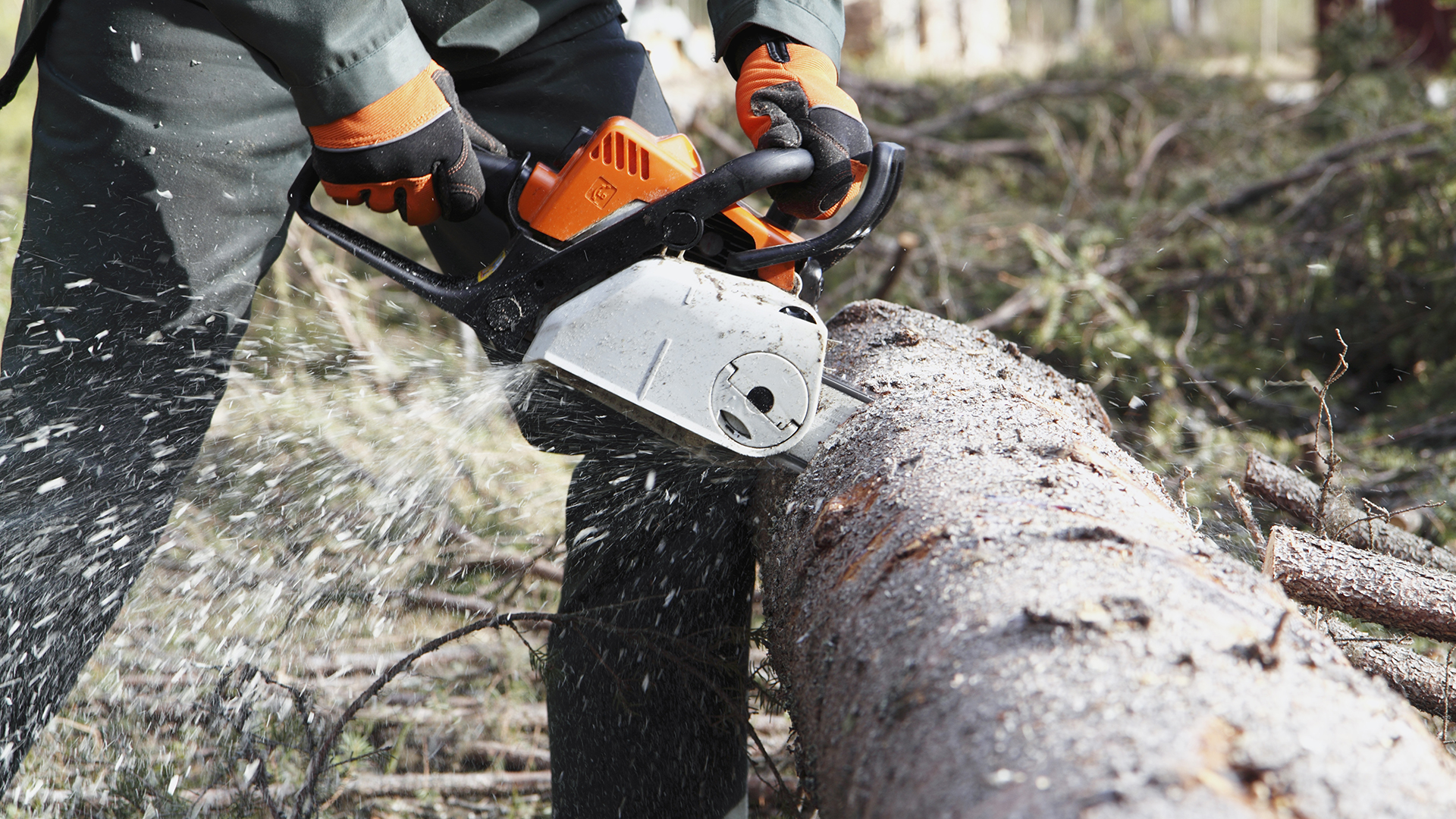You’re just getting ready to get started on a heavy-duty yard job - lopping branches, cutting down trees, or cutting firewood - and your chainsaw won’t start. Do you know how to troubleshoot the reasons why the chainsaw won’t start?
Never fear, here we will run through the top seven reasons why a chainsaw won't start. Running through these methodically should help you find out what is wrong - and get you on the road to getting your chainsaw up and running again.
They're not just used for cutting things down though - you can get creative with the help of chainsaws. You can cut up wooden railway sleepers to make benches, raised veg beds, and more. Alternatively, you can use one to create rustic furniture for your yard or cut log slices to make stepping stones through a lawn or flower bed.
If you think your chainsaw is terminally broken, never fear, you can look for a new one using our buying guide with advice on choosing the best chainsaws.
7 reasons why your chainsaw won't start
John Morris is a small engine and automotive industry veteran. He says: “The most common cause for chainsaws not starting is fuel. Today's modern fuels contain ethanol and only have a shelf life of 30 days according to manufacturers. Ethanol fuel degrades and causes a severe build-up inside the chainsaw carburetors. This causes fuel not to enter the engine, so it won’t start. Fuel that is also left out can attract water when left unsealed. If you fill your chainsaw with this fuel it won’t start.’’
These are some of the reasons why your chainsaw won’t start. When investigating, always safety first. Point the saw part away from you and keep it away from others. And keep your personal safety equipment on.
1. Flooding
Have you been pulling the start cord over and over? If you can smell fuel (more than usual) it is likely you have flooded the engine. If the weather is warm, check that your choke setting is not on. It is used in cold weather to improve the flow of fuel - but in warmer temperatures, it can lead to engine flooding. You can try pulling the cord while holding the throttle a few times, and then drying and putting back the spark plug.
2. Bad fuel
Gasoline can deteriorate over time - and because chainsaws are the sort of tool that is only used every so often (for most gardeners) it is likely that the fuel in the tank is no longer viable. Clean out the tank and fill it with fresh fuel.
3. Clogged air filter
As a rule of thumb, your air filters should be cleaned after around 10 hours of use. Checking the air filter should be a part of general maintenance. You might start noticing the chainsaw losing power - the first sign that an air filter is getting clogged up. You can try cleaning it with a soft brush or rinse it in hot water - but it may need replacing.
4. Clogged carburetor
This is where fuel and air are mixed to run the engine. This can get clogged, as old fuel can become sticky, which stops the mixing process from happening. To clean, you must drain any fuel and use a specialized cleaning cleaning solution. If this doesn’t work, you may need to replace it.
5. Clogged muffler screen
This is part of the chainsaw’s exhaust system - it is a small metal screen, which can get clogged with carbon buildup and debris. You can clean it with carburetor cleaning fluid and a soft brush, or simply replace it.
6. Fouled or bad spark plug
Spark plugs ignite the whole system using an electrical current. If they are dirty or have carbon build-up, the electrical connection will be lost. Try cleaning up - but if that doesn’t work replace it with a new one. It’s a good idea to replace them every other season or so anyway.
7. Ignition coil not working
The coil carries the voltage to the spark plug. If this is defective the engine won’t start up. If you have cleaned/replaced the spark plug, then it’s time to look at the ignition coil. You can buy a coil tester at a hardware shop. If you don’t get a spark when testing, then the coil is defective and will need replacing.
Northern Tool + Equipment expert Chad Beaty adds: “A lot of the failures can be avoided with proper use and maintenance. Most failures I see in the shop and field can be avoided with some simple basic maintenance on the units.
“Chain maintenance is a large part of keeping a saw running and working properly. When a user does not keep their chain sharp, they are pushing the saw past its limits of durability.
His tip for chain maintenance is simple: “If you stop throwing chips and only dust – stop! Sharpen or replace your chain!’’
He also advises: “Another common problem is improper equipment for the task at hand. Using an underpowered saw for a larger cutting task can lead to an early end of service life for the saw.’’
Discover more guides for the garden…
Cheap chainsaw deals
Best leaf blowers
Best pressure washers
Cheap pressure washer deals
Best patio heaters
Best inflatable hot tubs

